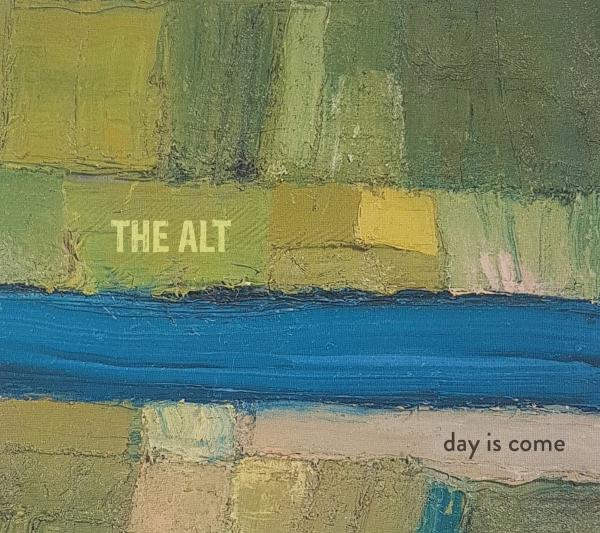January 31, 2022

If there was ever something to spark warmth and joy in the dead of winter, this album is it – but then, “Day Is Come” would be just as welcome in the middle of a July inferno. This is the second CD (the phrase “long-awaited” goes without saying) by the trio of Nuala Kennedy, John Doyle, and Eamon O’Leary, all of whom have justly exalted stations in the Irish music realm through their various solo work and collaborations over the years – upholding tradition while unapologetically infusing it with creativity and innovation. Their singing voices are an ideal complement to one another – Kennedy’s ingratiating, sweet high tones; O’Leary’s mellow, affable bass; Doyle’s cogent, compelling tenor – and, oh yeah, they’re pretty good musicians, too: Kennedy on flute and whistle; O’Leary on bouzouki and harmonium; and Doyle adding bouzouki, mandola, bodhran and keyboards to his trademark guitar.
The selections on “Day Is Come” are from many different sources – ballad collections, traditional music archives, poetry and their own pens – and include three songs in Gaelic. Among these is the joyous, winsome title track, led by Kennedy, “Ta ’na Lá,” which has connections to the medieval Oriel kingdom of Ireland (it encompassed Kennedy’s hometown of Dundalk). “Éiníní” is a children’s lullaby with an avian theme (the chorus translates to “Little birds, little birds, sleep, sleep”) and is mesmerizing as it is gorgeous, carried along gently by the trio’s exquisite three-part harmony.
The album’s wide-ranging tonal-emotional range further adds to its appeal: Doyle leads a brisk go-round of the darkly humorous bothy ballad “Falkirk Fair,” a first-person account of a rover’s misadventures that came from a field recording of singer Mickey McDaid (fiddler Marious Pibarot cameos to great effect here). By contrast is the solemn “Willow Tree,” a lament written by Pádraigín Ní Úallacháin (an award-winning singer, songwriter and academic) but with obvious roots in traditional song; O’Leary is out in front to begin, and gradually Kennedy and Doyle’s voices fill out the canvas – a break in which Kennedy’s flute joins with guest Kevin Burke’s fiddle is the crowning touch.
Suffice it to say that the instrumental arrangements are an added benefit to the vocals, but the trio also does a stirring unaccompanied setting of “The Connaught Rangers,” Winifred Letts’ ode to a famous Irish regiment of the Great War (Doyle provided the music).
And just when you think the proceedings can’t possibly get any better, along comes the album’s eighth track, the epic tale of romance-under-false-pretenses that is “The Flower of Northumberland.” Granted, the song already has got a lot going for it, sporting a charming melody and an infectious refrain (“Oh but her/my/your love it is was easy won”), but The Alt put the proverbial bow around it.
Burke, who plays on the aforementioned track, also joins in a set of tunes that begins with a strathspeyish “Stolen Butter” and segues into “Biddy Early’s Reel” – both were written by Kennedy, whose exceptional flute playing is front and center – and ends with the classic “Salamanca.” A sprightly take on the jig/song “Páidín Ó Raifeartaigh (Paddy O’Rafferty)” leads into a pair of reels, “Lohan’s” – a Doyle original – and “The Donegal Tinker,” and Doyle’s renowned guitar picking is in its full glory on both, making for a knockout of a duet with Kennedy’s whistle and flute.
The Alt’s body of work is laudable on its own terms – i.e., the outstanding musicianship and singing – but their championing of traditional song is deserving of notice, too. In the past couple of decades, we’ve seen contemporary songwriting become an increasingly strong presence in Irish folk/acoustic music, and O’Leary, Kennedy, and Doyle have been part of that trend (as have Karan Casey, Andy Irvine, Damien Dempsey, and Aoife Scott, among others). As “Day Is Come” shows, they know that old songs – including really old ones – can resonate with, move, and delight us as much as new songs. [thealtmusic.com]

